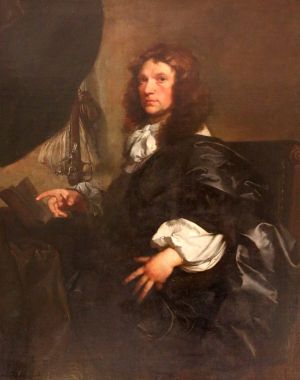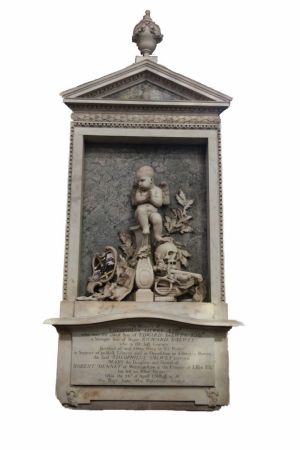The Clapham Society Local History Series — 17
Richard Salwey – A Clapham Puritan
by Timothy Walker
This article first appeared in the South London Press on 3 February 2017

In the middle of the seventeenth century, 20 or more merchants lived in large houses clustered round the old Clapham church just off Rectory Grove. They were radical puritans and godly men, but they all made money. They played an important part in Cromwell’s administration, particularly in the management of the Navy and policies towards foreign trade. They financed the Mayflower and started the first Protestant mission to North American Indians. Their naval connections attracted Pepys to Clapham long before he retired there.
One such was Richard Salwey who came from the borders of Hereford and Shropshire. He was apprenticed to a politically active merchant, became a radical spokesman for apprentices and, like many apprentices, married his master’s daughter. He was elected MP for Appleby, Westmoreland in 1645 and, as a major fought at the Battle of Worcester in 1651, reporting back to Parliament on the outcome. His portrait shows him with a gun in the background. Over his life time he was sent to the Tower at least twice and was the subject of many political ballads. With his neighbours, he formed part of the first Clapham Saints, 150 years before Wilberforce.
Salwey lived in Clapham from 1649 until 1652 or a little longer, and returned as a resident from 1683-85. He traded extensively, both with the Levant and importing tobacco from North America. One ballad records,
Salloway with tobacco
Inspired, turn’d state quacko
And got more by his feigned zeal.
Than by his What d’ye lack-o!
He was one of those who ensured the removal of the cross, altar and communion rails from the parish church, with his religious views summed up in another ballad
The tobacco-man Salway, with a heart full of gall,
Puffs down bells, steeples, priests, churches and all
As old superstitious relicks of Baal.
He played an important part in Cromwell’s administration although he had declined the request to be one of the judges in the trial and execution of Charles I. He was on both the Council of State and the Council of Trade and became one of the Commissioners for the Navy in 1652. All Commissioners worked very hard (Salwey sent letters headed ‘midnight – my bed’) and were remarkably successful in transforming the operations of the Navy and so winning the Anglo-Dutch war. He saw the hand of God supporting the action of a government run by the godly and described English naval victories as ‘miraculous works’ of God’s power which pointed to ‘the more spiritual appearance of our Lord Jesus in his kingdom’. Cromwell, who viewed him as ‘a man of great parts’ offered him the role of Ambassador in both Sweden and Constantinople but both were declined.

After Cromwell’s death, the restored Rump Parliament regarded Salwey as a traitor and sent him to the Tower but he was soon allowed to retire to his house on the grounds of ill health. This was not the end of his imprisonment. After the Restoration, he was arrested in 1662 and committed to the Tower in 1663 when he wrote to his wife that he ‘rejoices in his spiritual consolation and will suck honey out of every flower of Providence’. He was eventually released in early 1664 but Charles II later ordered him ‘to absent himself beyond the sea’ and he was again under suspicion at the time of Monmouth’s rebellion. Towards the end of his life he returned to Clapham but his death was a sad one; following his son’s financial collapse, he drowned himself in a pond.
However fervent his religious views, Salwey’s top priority was political reform and the primacy of Parliament. He was one of those who drafted the 1649 Commons resolution proclaiming the sovereignty of Parliament, saying
‘That the People are, under God, the Original of all just Power: And do also Declare, that the Commons of England, in Parliament assembled, being chosen by, and representing the People, have the Supreme Power in this Nation.’
He reinforced this when Cromwell complained that affairs of state and their attendant worldly temptations weighed heavily upon him, Salwey advised,
‘The way, sir, to free you from this temptation is for you not to look upon yourself to be under it, but to rest persuaded that the power of the nation is in the good people of England as it formerly was’
It is hardly surprising that his grandson’s memorial in Ludlow church says of his grandfather that ‘he sacrificed all and everything in his power in support of public liberty and in opposition to arbitrary power’.
You can read more about Clapham in the seventeenth century in The First Clapham Saints by Timothy Walker or at www.claphamhistorian.com.